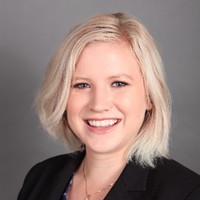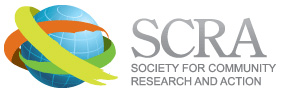Written by Vernita Perkins, Omnigi Research & Mayra Guerrero, DePaul University, Edited by Oyla Glantsman and reprinted from The Community Psychologist Volume 54, Number 4, Fall 2021
We are excited to highlight the work of community practitioner, Kayla DeCant. For the last several years, Kayla has worked with different community and non-profit organizations conducting educational programming aimed at preventing sexual violence among adolescents and young adults. Kayla confirmed pathways in her work align with Community Psychology values and her work is an excellent example of a prevention approach, combining administrative and direct service provider roles as well as bridging the gap between research and practice.
After graduating with her bachelors from DePaul University in 2015, Kayla worked with the Illinois Student Assistance Commission conducting programming that prepared first-generation and low-income high school students for their post-secondary education goals. This role helped her realize her passion for working closely with youth and conducting youth programming. Wanting to take her career to the next level, Kayla began to consider graduate education. This pivotal moment helped Kayla solidify that she wanted to pursue practice over research. Many factors contributed to this decision, including wanting to have a combined role where she could work closely with youth; rather than exclusively in a research capacity, while providing direct service. This decision also contributed to her realization of the disconnect that can exist between research and practice, and the lack of advocacy and dissemination of research findings that often does not reach the communities that could benefit from the evidence-based research. When Kayla witnessed the disconnect between research and practice, she notes her biggest frustration, how research does not regularly move in the direction of applied psychology and practice. Kayla keeps raising awareness and works to bridge the gap between research and practice, and between more integrative and reflective spaces within practice. In Kayla’s role at Rape Advocacy, Counseling & Education Services (RACES), she still saw these structural barriers and continued her quest to bridge the gaps between scholarship, research, application, and practice; recognizing the overlap can be saturated with animosity. Additionally, Kayla understands with a Master’s degree, she may not be seen possessing the expertise to identify her awareness of these gaps. According to her, it is an odd space to be in because, as she states: “as a practitioner I am seen as an expert because I have a graduate degree, but in the research world I am devalued because I don’t have a Ph.D.”
In 2016, Kayla enrolled in the Community Development and Action Masters program at Vanderbilt University. During her time in the program, Kayla worked for the Sexual Assault Center in Tennessee as part of her practicum. This role was her introduction to working with youth on issues related to sexual and interpersonal violence. The stigma and silence that revolves sexual violence contributes to its perpetuation, and Kayla views calling attention to these issues as having honest conversations with youth about this type of violence and how that can help break the negative cycle, while empowering youth by teaching them about their rights and helping them advocate for themselves and, as she says: “talking about how to get it right! How to have healthy relationships and fulfilling sexual lives,” examples of both primary and secondary prevention.
Between 2018 and 2021, Kayla worked as a Prevention Education Coordinator at RACES located in Urbana-Champaign, Illinois. This is a role where Kayla feels she could truly embody the values and principles of our field. Kayla’s work involved half direct service and half admin work. She supervised staff, did grant reporting, met with schools on sexual assault prevention education, sat on the RACES supervisory team, and chaired the LGBTQ+ statewide committee, where she participated in state level conversations about improving sexual assault support and advocacy. Kayla notes that quite a few adjustments had to be made when, along with COVID-19 pandemic restrictions, all educational offerings moved online for K-12.
Kayla trained her staff on the care industry myths that pressure care professionals to sacrifice themselves for in-person direct service over remote direct service, and who are often guilted into reducing self-care to accommodate increasing direct service needs. This fit well with the organization’s position on self-care, which integrated self-care training for RACES staff. Kayla taught her staff how to protect the boundaries between their personal and professional lives, as she notes the 24-month attrition rate in this field of work. She stresses the importance of modelling self-care behavior with strict boundaries. And it’s important for her as admin to set those standards, institutionalize them (i.e., create policy) and have the organizational resources to support that (e.g., good health care, good pay, etc.). “Self-care can only get you so far if you can’t afford to go to the doctor, or you have to work a second job to make rent” says Kayla. She recommends the book Trauma Stewardship, grateful the book was recommended to her early in her career, and credits the content with building her self-awareness and self-reflection around trauma response boundary setting.
“Self-care is more than bubble baths,” says Kayla, it’s about setting boundaries and making sure that self-care includes therapy. Normalizing regular therapy for care professionals in their employment statements and ensuring they have time for therapy appointments. The Center’s health insurance plan supports therapy along with no copays during the pandemic. In this and many other ways, the Center’s mission aligns with its culture and values, a big asset to the care industry and to trauma-informed support services.
Staying true to Community Psychology values while working in the community can often be challenging given the many structural and organizational barriers practitioners face. For Kayla DeCant, these challenges have not stopped her from embodying CP values through her work on sexual violence prevention among adolescents and young adults.
Some of the most important lessons she has learned while providing direct services to youth and sexual assault survivors is to be reflective, strategic, and to listen to community members, who are the true experts of their experiences. At the same time, crisis workers rarely see immediate results, what Kayla refers to as the broad arc of healing; it can be difficult to see long-term wins. In many settings, administration and leadership can block a cohesive connection between being on the ground/in the field, doing second order change while learning from first order change. Although Kayla admits there is a lot more paperwork in her role doing a combination of administration and direct service, she knows the outcomes are worth it in the long run. The RACES Center is funded through federal dollars (Violence Against Women Act aka VAWA and Victims Of Crime Act aka VOCA) that get funneled through the State as well as through Champaign County’s Mental Health Board (CCMHB) and United Way of Champaign County. Kayla stresses the failure of funders to understand the importance of investing in prevention education and training for crisis work. She points out how funders are not always fond of providing funding, specifically for prevention work, because the value for the money is not always clear, thus, part of her role was to demonstrate how the funding for sexual assault prevention is justified. It is easy to see the value in crisis management and response. She is grateful the Center’s previous Executive Director built a solid financial structure within the organization.
At RACES she handled K-12 education, [Erin’s Law] education, professional development for teachers, youth organizations, and faith-based organizations to create cultures of care, trauma-informed work, and organizational structures designed to reduce the instance of sexual assault. All staff members handle the 24/7 rape crisis hotline, and serve in medical advocacy–where RACES staff meet sexual assault survivors at the hospital as a third-party advocate to assure compliance with Illinois State law (SASETA). Kayla noted not all states have strong sexual assault advocacy laws, as she experienced with the states of North Carolina and Tennessee.
Asked where she sees her practice going long term, Kayla says this is a challenging question to answer and admits that she loved the position she has been for the past three years doing both administrative/logistical and direct service without wanting to give up either. As an administrator and a direct service provider, she could see technically big picture stuff, working with funders, working the hotline, etc. Keeping her foot in direct service helped her inform her administrative work, understanding nuances helped her advocate for staff. What does that mean long term for her career? She is not sure, but she is passionate to continue.
Kayla is now working as the Project Director of Prevention & Outreach at Lewis University. This position is very similar to her previous work–just on campus versus in the larger community. She is still funded through federal dollars (Office of Violence against Women aka OVW). It is a three-year grant that really focuses on 5 core areas to create sustainable change within the campus community. While this position is more admin than her previous work, she gets to do policy work and community-level culture change that she was not previously able to do.



